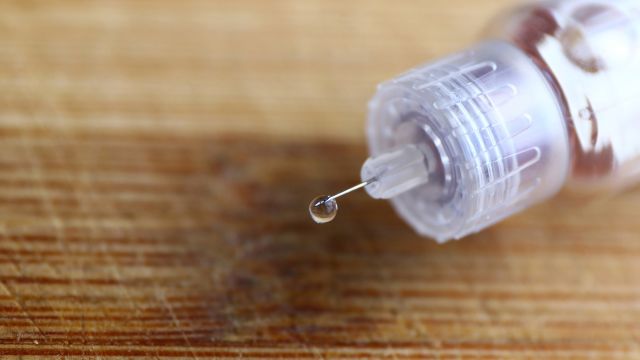Hidradenitis suppurativa (HS) is categorized as a chronic skin condition, and for good reason—after all, it causes painful breakouts in areas where skin rubs together, like the armpits, breasts, buttocks, inner thighs, and groin. These painful breakouts may include boils, nodules, and pimple-like bumps. Over time, these lesions may break open and drain pus and fluid. The open wounds left behind can cause scarring and infections.
But while HS is categorized as a skin condition, the underlying cause is abnormal immune system activity.
Here’s what’s going on in the body when a person has HS: First, hair follicles in the skin become blocked, and then, the immune system responds to this blockage—aggressively—causing inflammation, redness, and swelling.
It is not known why this occurs in some people, though it is not related to poor hygiene and it is not contagious. People with HS are also more likely to have other conditions associated with inflammation as well, including heart disease, diabetes, polycystic ovary syndrome (PCOS), and inflammatory bowel disease.
Biologic therapies and HS treatment
Dermatologists prescribe a variety of treatments for HS. These can include lifestyle changes, surgical treatment to drain or remove abscesses, and medications. Medications may include different topical or oral medications, as well as biologic therapies.
Biologic therapies are a type of medication that contain proteins that can help turn parts of the immune system "on" or "off." For HS, some biologics block molecules that are related to inflammation. By blocking the underlying inflammation before it starts, these medications can help ease symptoms and minimize scarring from skin lesions.
There are different types of biologics. Only one is specifically approved by the U.S. Food and Drug Administration (FDA) to treat HS. But other biologics may be prescribed off-label to treat HS as well. These medications are administered via a subcutaneous injection—and injection under the skin.
Biologics are not prescribed for mild HS. They are recommended for moderate-to-severe cases. Moderate typically refers to HS where symptoms appear on more than one place on the body, recur over time, and cause some scarring. Severe refers to cases where symptoms affect larger areas of the skin and/or multiple areas across the body, and cause extensive scarring and pain.
When should I try a biologic?
Biologics are usually prescribed after you’ve already tried other treatment options and they haven’t worked. You’ll probably first start by taking antibiotics to help infected skin lesions, and your dermatologist might prescribe other medications like steroid injections, acne medications, hormone therapy, or non-steroidal anti-inflammatory drugs (NSAIDs).
Your dermatologist may also suggest lifestyle changes like wearing loose clothing, quitting smoking, and easing symptoms using compresses, ice packs, and baths. They may also recommend making changes to your skin care routine—for example, using different soaps, body washes, and antiperspirants.
What else should I know about biologics?
As with other medications, biologic medications come with a risk of side effects—for example, redness or pain at the injection site. Because biologics act on the immune system, they can increase a person’s risk of infections. It’s important to discuss any potential side effects and how to recognize side effects before starting any medication—this includes biologics, other medications for HS, and other medications for other conditions.
If you’ve tried other HS treatments and don’t feel that your HS is well controlled, biologics may be an option worth exploring. Talk to your dermatologist to see if biologics could be a good treatment option for you.






